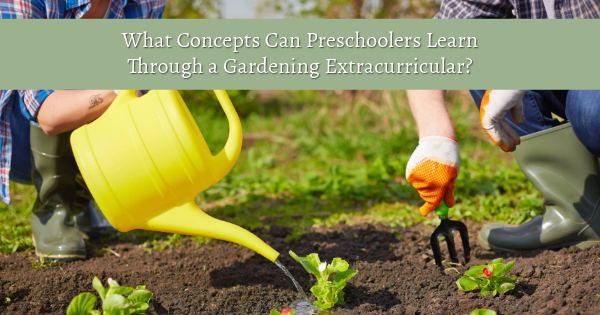Enrolling your child in one of the best local preschools means they’ll enjoy fun activities teaching basic academic and social skills to prepare them for kindergarten. According to USA Facts, about 50% of the 3 to 4-year-olds in the U.S. are enrolled in a public or private preschool. Gardening engages multiple senses for hands-on learning about science, nutrition, responsibility, and more while playing in the dirt! Here are some of the concepts that preschoolers can learn through gardening extracurriculars.
Understanding Plant Life Cycles
By planting seeds, watering seedlings, and watching fruits and vegetables grow, preschoolers gain firsthand knowledge of the plant life cycle. They’ll discover what plants need to germinate, sprout roots, grow bigger, flower, and produce their edible bounty. Getting involved by digging, planting, weeding, and picking garden goodies brings this science lesson to life. The best local preschools know learning through play lasts.
Trying Healthy Foods
Since children often turn up their noses when offered an unfamiliar veggie at dinner, growing their own healthy foods encourages tasting them. Preschoolers who cared for the plants from seed to harvest tend to eagerly sample garden delights like peas, carrots, or berries straight from the vine. Gardening helps overcome vegetable aversions while getting children excited about eating nutritious foods they grew themselves!
Learning Responsibility
A school garden provides the perfect setting for teaching youngsters about responsibility. The best local preschools assign children daily jobs, like watering plants, pulling weeds, or collecting tools. Tending to their duties develops accountability, self-confidence, and readiness to pitch in. Preschoolers love feeling capable of caring for living things and taking ownership of projects.
Developing Math Skills
Gardening also lends itself well to cultivating early math skills like sorting seeds by size, shape, or color before planting. Counting the number of vegetables harvested or the days until sprouting builds number awareness. The watering of plants develops an understanding of measurements and volume by filling and emptying watering cans.
Early childhood educators understand the multi-faceted developmental perks enjoyed by children who dig their hands into the soil. Blending STEM concepts, nutrition lessons, and character building, gardening gives young learners hands-on joy. Watching seeds transform into edible plants and flowers makes science real while boosting health through fun physical activity and tasting fruits and veggies. If you seek a nurturing preschool to enrich your child in myriad ways, look for one offering gardening play.
